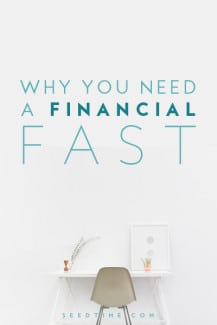The Bible doesn’t limit fasting only to food and drinks. Anything that can be given up temporarily so that we can focus our full attention on God can be viewed as a fast.
15 Fundamental Truths of Personal Finance
It’s best to set in stone some core financial principles sooner rather than later. Here are some fundamental truths you should always keep in mind.
5 Christmas Shopping Mistakes to Avoid
Christmas is around the corner, and with Black Friday behind us you might need to up your game if you’re not done with your list. But before you rush to the store or add something to your cart online, now’s the perfect time to think about some of the biggest mistakes that you should avoid this season.
Fun & Easy Way To Memorize Bible Verses (Step-By-Step)
In my high school years, I gave up sports for a different activity — Bible Quiz. For those who have never heard of Bible Quiz, it’s an activity in the AG churches that brings together youth to quiz them on different books of the Bible each year. Yes, it sounds dorky, but we ended up memorizing over 2,000 verses that sharpened our minds and strengthened our faith!
7 Ways to Control Your Spending
Spending must be a conscious activity What do I mean by that? Have you ever said the following at the end of the week or month: “Where on earth did my money go?” I know that I’ve said that! The idea behind conscious spending is to break the habit of spending whenever you ‘feel’ like […]
What’s Your Financial Personality?
What if there was a scale that you could use to classify your financial personality?
Subsidized vs. Unsubsidized Student Loans
When borrowing money for college, students have two different types of federal student loans that they can access: subsidized and unsubsidized. What are the differences between these two types of loans? Which type of loan is more attractive for students?
Faith and Giving Lessons from C.S. Lewis
In his book, Mere Christianity, C.S. Lewis explains an aspect of the Christian faith by comparing it to receiving and giving a gift.











